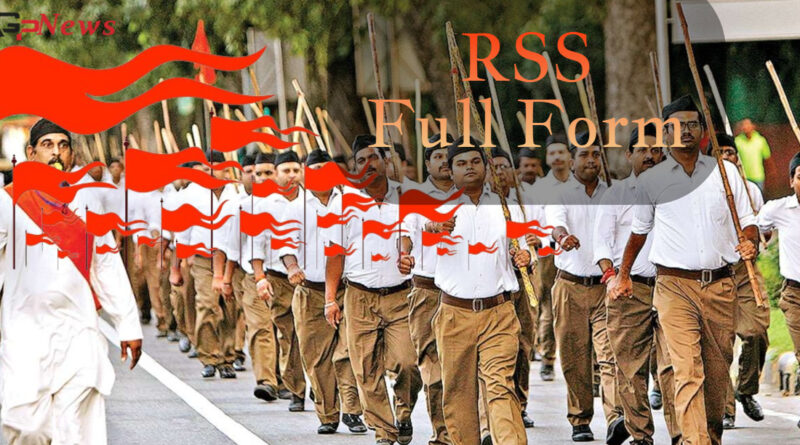RSS Full Form: What is RSS?
Overview of RSS
RSS Full Form: Rashtriya Swayamsevak Sangh (RSS) stands for ‘National Volunteer Organization.’ Established in 1925 by Keshav Baliram Hedgewar and Dr. Annie Besant, the RSS aimed to protect Hindus from Muslim and British rule in India. It also sought to unite Hindus of various castes, regions, and religions into one cohesive state. Since 1990, the RSS has headquartered at Akshardham in Delhi. With over 40 million members worldwide, it is the largest volunteer organization globally and remains a significant part of Indian society.
RSS Full Form: What is RSS?
The RSS is a major charity organization in India, boasting a budget of around 16 billion rupees (approximately $237.2 million). It works with over 200,000 affiliates both in India and abroad. Members, known as Swayamsevaks (volunteers), are selected and trained rigorously. The organization has around 1.25 million members, each part of a group called a shakha (unit). Joining the right shakha is crucial for earning a place in the RSS, which imposes significant responsibilities on its members. RSS Full Form
RSS Objectives: RSS Full Form
The RSS aims to create a society where the State operates under “Vedic Dharma,” advocating for Hindu pride and patriotism. The organization supports Hindutva, believing this ideology is essential for India’s development into a strong and powerful nation.
RSS Full Form: History of RSS
Founded in 1925 in Nagpur, the RSS was created to revive Hindu values and ideals, leveraging the power of Indian masses to promote Hinduism. It has consistently raised its voice against injustices and insults from foreign invaders by forming various Hindutva-oriented organizations.
Philosophy and Purpose
The RSS (RSS Full Form) philosophy emphasizes the unity of all Hindus, promoting a single Hindu Rashtra (nation). According to the organization, despite the different sects and religions separated by history, the goal is to restore unity among them under Hinduism. The RSS headquarters in Nagpur, known as the seat of Balasaheb Deoras, serves as the center of learning and dissemination of knowledge and thoughts within the organization.
Importance of RSS
Pandit Deen Dayal Upadhyay, one of the key figures behind the RSS, described it as a permanent Hindu army to address Hindu-Muslim conflicts and support the ruling establishment. The RSS has played a vital role in significant social and political activities in India, including its involvement in the Indian freedom struggle alongside the Indian National Congress. Later, it contributed to the formation of Jan Sangh in 1951 and the Bharatiya Jana Sangh in 1953. RSS Full Form
Conclusion
The RSS (RSS Full Form), founded in 1925, is a powerful and influential organization in India, promoting the ideology of Hindutva. It works towards the development and strengthening of Hindu values and beliefs while aiming to improve the welfare of all castes, communities, and states in India. The organization was founded by M.S. Golwalkar, along with other senior leaders like Dattopant Thengadi and Madhav Sadashiv Golwalkar. Although the exact membership figures are not officially released, the RSS remains a cornerstone of Hindu nationalism and continues to play a significant role in India’s social and political landscape.
FAQs about RSS Full Form
What does RSS stand for?
RSS stands for Rashtriya Swayamsevak Sangh, which means ‘National Volunteer Organization.’
When and why was the RSS founded?
The RSS was founded in 1925 by Keshav Baliram Hedgewar and Dr. Annie Besant to protect Hindus from Muslim and British rule in India and to unite Hindus of various castes, regions, and religions.
What is the main objective of the RSS?
The main objective of the RSS is to create a society where the State operates under “Vedic Dharma,” promoting Hindu pride, patriotism, and the unity of all Hindu traditions.
How is the RSS organized?
The RSS is organized into units called shakhas (groups), where members, known as Swayamsevaks (volunteers), are selected and trained. It has around 1.25 million members and works with over 200,000 affiliates in India and abroad.
What role has the RSS played in India’s history?
The RSS has played a significant role in India’s social and political activities, including the freedom struggle alongside the Indian National Congress, and in the formation of Jan Sangh in 1951 and the Bharatiya Jana Sangh in 1953.




